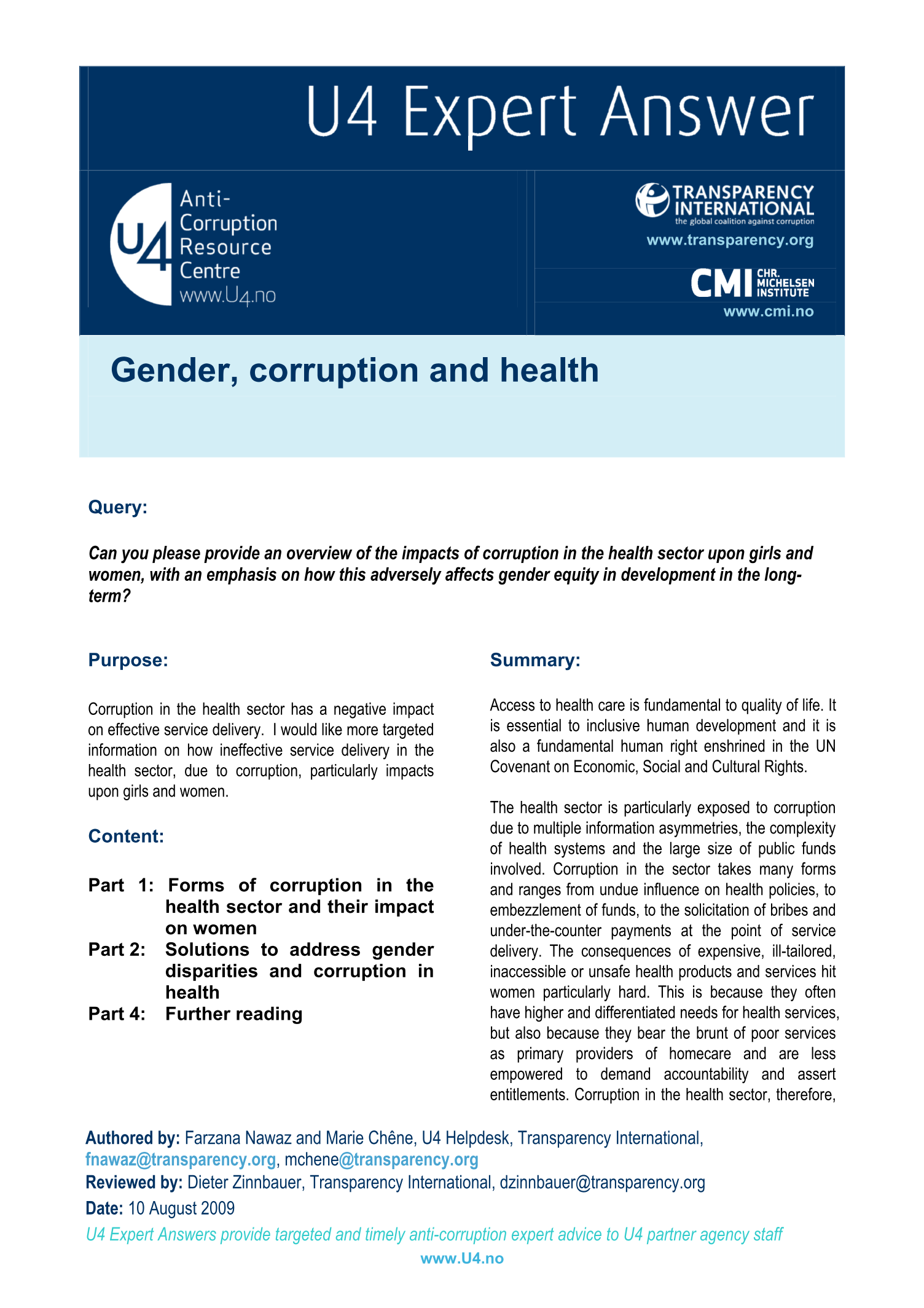U4 Helpdesk Answer
Gender, corruption and health
Access to health care is fundamental to quality of life. It is essential to inclusive human development and it is also a fundamental human right enshrined in the UN Covenant on Economic, Social and Cultural Rights. The health sector is particularly exposed to corruption due to multiple information asymmetries, the complexity of health systems and the large size of public funds involved. Corruption in the sector takes many forms and ranges from undue influence on health policies, to embezzlement of funds, to the solicitation of bribes and under-the-counter payments at the point of service delivery. The consequences of expensive, ill-tailored, inaccessible or unsafe health products and services hit women particularly hard. This is because they often have higher and differentiated needs for health services, but also because they bear the brunt of poor services as primary providers of homecare and are less empowered to demand accountability and assert entitlements. Corruption in the heal

Cite this publication
Nawaz, F.; Chêne, M. 2009. Gender, corruption and health. Bergen: U4 Anti-Corruption Resource Centre, Chr. Michelsen Institute (U4 Helpdesk Answer Helpdesk)
Disclaimer
All views in this text are the author(s)’, and may differ from the U4 partner agencies’ policies.
This work is licenced under a Creative Commons Attribution-NonCommercial-NoDerivatives 4.0 International licence (CC BY-NC-ND 4.0)


